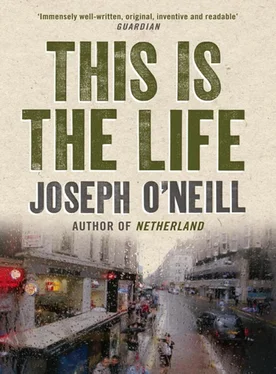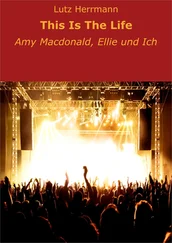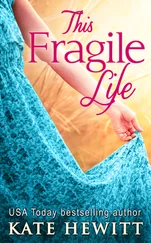I know what you are saying here. You are saying, My God, what a self-pitying, bellyaching, unpleasant little man. He’s behaving like a spoiled brat. Why doesn’t he grow up? Why doesn’t he get a grip of himself?
Well, I do not buy that, I am afraid. I do not buy all that stoical stuff, taking the rough with the smooth and letting bygones be bygones. To hell with all of that, to hell with getting a grip of myself! I have a legitimate grievance here. I worked myself to the bone for that tenancy, and what did I get? Nothing. I was robbed! Let bygones be bygones? Why should I?
It makes me despair. When I think of what I have become, when I think that I used to be a lawyer. I used to have analytical faculties, powers of cerebration, ratiocination. And now … now I cannot even understand a simple legal concept; even a notion as straightforward as marital cruelty makes me struggle. That is not the worst of it. To think that I could, that I should , right at this moment, be someone else, that I should now be something — that is the worst: that my name should be up there on that blackboard in Essex Court, that James Jones should be there, figuring in the law reports and newspapers, in the periodicals and the footnotes: that instead — instead we have this rubbish.
Why? And why me? This is what I want to know. Why should I be the one to end up this way? Why, of all people, me?
I have mopped my face, dropped a fizzing disc of aspirin into a glass of water and swallowed the solution. It has worked, and I have calmed down. I have regained my sense of proportion. I have stopped crying (yes, for the first time in two decades I have cried, you can see the tears where they have landed on the page and made words run) and I have pulled myself together. It is vital that I do not allow myself to be side-tracked by such irrelevant emotional outbursts. Why I did not get taken on at 6 Essex is neither here nor there. It does not go anywhere towards meeting the question in hand, which is this: why did the Donovan affair end in the way that it did?
The sooner I am able to answer that query the better, because the sooner I will be able to return to work. That does not mean that I am in any great rush to get back. No, I will say this for my job: as a partner I am allowed a certain flexibility. I have certain freedoms. If I want some time off, I can usually take it. There is a theoretical danger of being voted out of the firm by the other partners — of being fired — but I know how rare this is and how much leeway I have. This leave without notice that I am now taking is against the rules, but the transgression is not grave enough to put me in any real hot water. Eyebrows will be raised and subtle reprimands will be forthcoming, but that is all. If there is one thing I still do know about in this maelstrom, it is the tolerances of Batstone Buckley Williams.
Going back to Christmas, 1988, I holed up in bed for a day or two afterwards. Cushioned by duvets and extra pillows, waiting for the new year, I managed to put a lid on the Oliver Owen revelation. Forget it, I told myself. It’s over. It’s not important. It’s all turned out for the best.
Then, as I began to feel better, I actually drew strength from Oliver’s news. It occurred to me that I had been paid a great compliment: when that vacancy arose at 6 Essex, they had gone to great lengths to contact me. Of all the young barristers in the Temple, I was the one they had singled out. To do that they must have really rated me. They must have thought that I was quite something.
A thrill of gratification ran through my limbs. Then I thought, Maybe I still have some of that old brainpower. Maybe there are grey cells that can still be salvaged.
Excited by this possibility, I decided to put myself to the test. To start with I reacquainted myself with the principles of international law. Yes, they still made sense. Then, during four sleepless days, I reread all of Donovan’s writings (which is not to say that I took in every word). I looked again at the notes and observations I had made about them over the years, often surprising myself with the perceptiveness I had shown in those days. Was I really responsible for that acute note in the margin? Was that mine, that penetrating aside?
Gradually, after a week of fruitful concentration in front of the blazing gas fire, my confidence in my mental abilities began to return. I began to make something of an intellectual comeback. I began to apply my mind seriously, less tentatively, to the themes of Supranational Law , trying to understand how and why Donovan had arrived at the prescriptive conclusion that international law should, in the final analysis, be more than just an expression of the relations of sovereign States. I had already seen that Donovan would have to come to terms with the principle of the self-determination of nations and autonomy generally, that he would have to look at the function and rationale of the State; and instead of leaving those frightening subjects alone and waiting to see how Donovan would deal with the problems, I took them on personally, head-to-head. I went to the library and boned up on philosophical texts, perusing Locke, Rawls, Nozick and the rest of them in record time. I am not saying that I understood or appreciated everything I read, or that I did not rely heavily on secondary texts. Of course I did. But what was extraordinary was the facility with which I grasped the concepts that these great minds bandied about — I actually understood what they were saying, where they were going. Needless to say, it thrilled me to be there, alone in the library’s reading room, involved once more in academic pursuits, shadowing difficult ideas along their steep, breathtaking routes. Yes, I said to myself as old thought-patterns and insights came back to me from the past, Yes, I remember now. And then I thought, This is it. This is what it’s all about. This is the life.
When, after three weeks, this idyll came to an end, I felt refreshed, as sharp as I could remember. Shaving on the morning of my return to work, I looked forward to tackling the demands of the weeks ahead. Then I suddenly remembered.
The trial. The Donovan showdown. I had forgotten all about it.
As my blade curved around the contours of my face, carving tracks of fresh skin through the shaving cream, I counted the days until February the 1st: eighteen. The trial was just two and a half weeks away and still Donovan and I had not talked about, let alone decided on, such things as the evidence, the lines of argument, the problems that we might face. I had not heard from Donovan since the game of golf and it was vital that we went into these matters. It would be the first thing to attend to when I went to the office.
Rodney gave me some disconcerting news.
‘Mr Donovan? He’s in Rio de Janeiro isn’t he?’
Because I was a little tense I said, ‘I don’t know, Rodney, you tell me.’
That’s right, sir, he’s in Rio,’ Rodney confirmed. ‘Due back on February the 14th, if I’m not mistaken.’
This took me aback. It did not make sense: how could Donovan be at his divorce trial in London if he was in South America?
Rodney gave me Donovan’s hotel number in Rio. After a number of attempts June finally put me through. Mr Donovan was not replying, the receptionist said. It was 6.10 in the morning, she said. Take this message, I said: James Jones phoned. (I thought about phrasing the message in the imperative — Phone James Jones, urgent — but decided against it.)
I received no reply that morning and when I returned from lunch there was no message for me. This was no laughing matter, I thought. This was serious. Something had to be done, I had to find out what was going on. Just then, just as I was wringing my hands in anxiety, I received a telephone call. It was from Philip Hughes. He made no sense at all.
Читать дальше
Конец ознакомительного отрывка
Купить книгу












